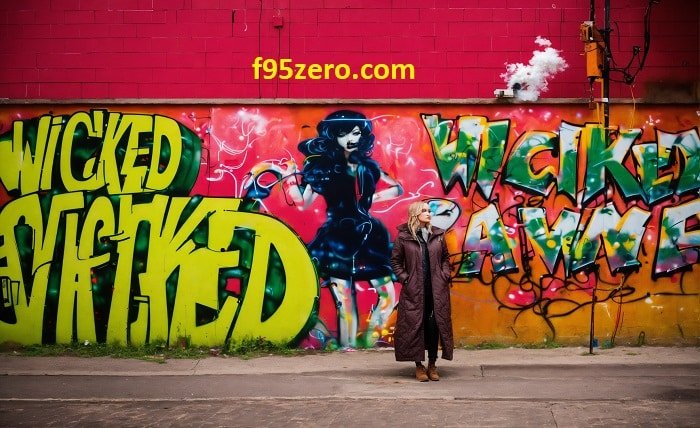The Mystery: What Does Half Wicked Really Mean?

The phrase “half wicked” can spark intrigue and confusion in equal measure. It’s ambiguous, leaving room for interpretation and raising questions about its true meaning. But fear not, curious minds! This post delves into the various interpretations of “half wicked,” exploring its potential origins and applications.
Moral Ambiguity: Walking the Tightrope Between Good and Evil
Perhaps the most common interpretation of “half wicked” centers on moral ambiguity. It suggests someone who possesses both good and bad qualities, is capable of both virtuous and villainous actions. This duality can be fascinating, as it challenges our simplistic notions of good and evil, reminding us that people are complex and multifaceted.
Internal Conflict: Wrestling with Inner Demons
The “half wicked” label can also reflect an internal struggle. It could describe someone battling their own dark thoughts and desires, trying to overcome negative impulses while maintaining a sense of morality. This internal conflict can be relatable, as we all grapple with our own imperfections and strive to be our best selves.
Selective Wickedness: Choosing When to Misbehave
Another interpretation suggests that “half wicked” refers to someone who chooses to engage in mischievous or harmful behavior only in specific situations. They might bend the rules or push boundaries, but not to the point of causing significant harm. This “playful wickedness” can be seen as a way of adding spice to life or challenging the status quo.
Misunderstood or Misjudged: The Perils of Perception
Sometimes, the “half wicked” label can be unfairly applied to someone who is simply misunderstood or misjudged. Their actions might be misinterpreted, leading others to perceive them as more wicked than they truly are. This highlights the importance of understanding context and avoiding judging individuals based on limited information.
Pop Culture References: From Fairy Tales to Fitness Supplements
The phrase “half wicked” has also found its way into pop culture. It appears in various forms, from fairy tales with morally complex characters to titles of fitness supplements. These references add to the ambiguity of the term, but also showcase its potential for creative expression.
Personal Interpretation: Finding Meaning in Your Own Half
Ultimately, the meaning of “half wicked” is subjective. It’s a phrase open to individual interpretation, allowing each person to connect with it based on their own experiences and perspectives. What makes you “half wicked”? Explore your own definition and embrace the complexity it represents.
Conclusion
“Half wicked” is a thought-provoking phrase that invites exploration and reflection. Whether it reflects moral ambiguity, internal conflict, or simply a playful side, it reminds us that humans are not one-dimensional beings. We all possess a mix of good and bad, light and shadow. So, the next time you encounter the term “half wicked,” take a moment to ponder its meaning and how it might apply to yourself or the world around you.
FAQ
- Q: Does “half wicked” always have a negative connotation?
A: Not necessarily. While it can imply darkness or mischievousness, it can also suggest a playful defiance of norms or a complex, morally gray character. Ultimately, the interpretation depends on context and personal perspective.
- Q: Where did the phrase “half wicked” originate?
A: The exact origin is unclear, but it likely developed organically through everyday language and storytelling. Pop culture references have further solidified its presence in our vocabulary.
- Q: How can I use the phrase “half wicked” creatively?
A: The possibilities are endless! Use it to describe a character, explore a theme in your writing, or invent a story around the concept. Let your imagination run wild and explore the various shades of “half wickedness.”




